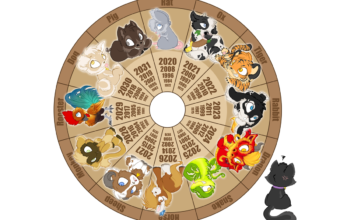Beauty is truth, truth beauty
John Keats, Ode on a Grecian URN
– that is all ye know on earth,
and all ye need to know
I love seeing people naked.
Any people – old, young, fat, thin, male, female, other. Anybody. Any body. It doesn’t turn me on, but it always brings me to my knees. I find the humanness of it just so completely overwhelming that the language leaves me to describe the gratitude I feel when I see every square centimetre of another human being in a single frame, all at once.
I laugh on a good day and cuss on a bad one when I hear someone describe the nude as ‘immodest’. I can’t for the life of me think of any state of being that could possibly be more modest. How on earth can even the most ripped person be pretentious and fulloshit when the crack of their ass is in plain sight? Under all our gear, over all our branding, and beyond the reach of our debts and fortunes, nudity is The Great Equalizer. We are, each and every one of us, only ourselves. And so I worship nakedness on bended knee and genuinely rue that there are laws and norms restricting it from us.
I became a music lover from my earliest memory on exactly that same principle. Music opens up a window on a place that absolutely no one can hide in. It’s like a DNA test for the realest, truest version of whoever is singing or playing or songwriting or humming or finger-tapping as the spirit moves them.
That was painfully obvious to me when, at age five, I put the 45 RPM single of Herman’s Hermits‘ No Milk Today on my portable, single-speaker record player and played it over and over again. I couldn’t rip myself away from the hollow emptiness of the singer and his song. I had no understanding of what the lyric said or meant, and I didn’t need any. The music proper was clearly about loss, yesteryear, a person who used to be joyful. I could imagine his face and his hair, what his eyes looked like, his body language and expression. I didn’t want to move, the walls changed colours, things that weren’t there were there, and I felt like The Singer was everywhere inside and around me, twisting my nerve endings into a message I needed to understand. For three minutes at a time on every play of this record, I was completely beyond the reach of my physical space, and I came to know a complete stranger inside out – a person who didn’t exist to four of my five senses.
I remember thinking to myself at that very moment that music was able to do something that nothing else could. I felt like I knew the singer intimately (I didn’t know the difference between a singer and a songwriter, and I thought that the singer was making all the musical accompaniment happen just by singing). I never saw a picture of Peter Noone until many years later, and to my sharp disappointment, he looked nothing whatsoever like what I though he would. His musical face and his physical face mismatched, and the physical one was the imposter – I’d known Peter Noone from the time I was five.
A short couple of years after its release, a friend of mine bought Steely Dan’s Greatest Hits (1972-1977), a double album, and played it all the way through. I knew all of the songs and I was amazed that there were so many of them. The duo had certainly piled up the hits over the years, and I was reeling. See what I did just there (SWIDJT)?
And man, they were really good songs. Catchy, intelligent, great hooks, cheeky – often hilarious – lyrics with infectious turns of phrase, and of course peerless musicianship. For six solid years (and then two more with Gaucho) Walter and (the other) Donald just cranked ’em out. You could set your watch by the dripdripdrip of their AM/FM ubiquity.
But songwriting, unlike musical style, is a craft, a 10,000-hour practice. Use it or lose it. Becker and Fagan were by no means idle following their split, but composition now had more to do with personal exploration than with packaging units for distribution. The skilled labour part of the creative process lacked the cadence and seriousness of purpose that it had for them in the 70s. That’s normal and totally understandable.
The reunion album, Two Against Nature, dropped in 2000, fully twenty years after the last of their halcyon days. Never minding their personal toils, the pair were older now and they’d exercised half an adulthood of non-commercial musical development; the kids had lived and learned (SWIDJT).
As a block, the songs were objectively terrible. You couldn’t find a worm if you nailed one to your ear. The lyrics were old-man-clever. There were no memorable intros, solos, musical refrains. The song machine, on blocks in the driveway for twenty years, was rusted out. They couldn’t go back and do it again, Jack (SWIDJT).
But musically, the album was as rich and as beautiful as anything they’d sold a million of. Fagan’s voice lines were still as disjunct and recitative as always, but now within an easier tessitura – he reveals his safe space. Dissonant sus and ninth and sweet ‘mu’ chords are still in the vocab, but they’re smoothly marbled throughout the progressions, and not jack-in-the box song moments – they surface their fossilized habits and won-and-lost arguments with record labels, family members and each other. Rhythms, hemiolas and syncopations echo hits from days of yore, but don’t reprise them – I can hear the repartee between them in the nicer restaurants they now have the time and funds to enjoy.
Net, the songs suck. As an anthology of tuneage, the album is a thoroughgoing snooze. But musically, it’s been one of my playlist favourites for two decades now.
Musical personality.
I don’t know where the term ‘Musicality’ originated. A quick Google will bring down a bunch different dates and etymological traditions. Definitions differ too: Merriam-Webster sets its meaning as “sensitivity to, knowledge of, or talent for music”, or “the quality or state of being musical”; Oxford offers “skill and good judgment in playing music”.
Gotta say, I hate those definitions. Why?
When I was in grad school chasing my MA in Musicology, I came to avoid the using the M-word altogether. I should start by saying that many – not all, not even most, but many – music history students had a chip on their shoulder. There were those who only chose Musicology as an academic path because they weren’t good enough or good-looking enough (me, both ways) to be performers, nor creative enough or crazy enough (me again, just the first way) to be composers. You know, the cool gigs. So whenever a player came along, locally or internationally, who was revolutionary or just impossibly good, the musicologists (our self-appointed jurors of musical merit), gripped by jealousy, would carp “yeah, he’s technically slick, but he has the musicality of a stone”. Gimme a break.
I became so annoyed with my envious colleagues for weaponizing something so mushy and subjective just to deny a ninja his due, that I started calling out the word every time it was used. “WTF does that even mean?”, I’d challenge. “How do you even measure that?” I got some of the windiest, silliest answers you can imagine, and even some you can’t.
So I’ve decided to take the M-word back. I reject the judgy, qualifying “knowledge, talent, skill, good judgment” hammers. I do so for the same reason that you will never, not ever, see a “Top [n] [listitems] of all time” ranking on this site. It’s a popinjay’s errand, and it serves to do nothing but hate other artists. It’s music’s equivalent of body-shaming.
And so I’ve redefined ‘musicality’ as a portmanteau of ‘musical’ and ‘personality’. There is no good or bad, only one type or another, or, best yet, a mix of types. There’s room for any musician to expose who they really are on the premise that no one is perfect, everyone is different, and, pace Keats, beauty lies in who they really, truly are. No album covers, no song templates, no formulaic hooklines… just true, raw music to lay its creator naked for us.



